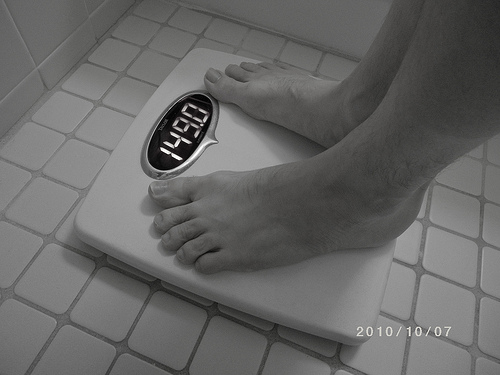Binge Eating Remains Most Common Eating Disorder In America

In 2012, the National Association of Anorexia Nervosa and Associated Disorders (ANAD) declared binge eating as the most common eating disorder in the United States. While anorexia and bulimia may seem to make headlines more often, Binge Eating Disorder (BED) still remains the most common eating disorder in the U.S. today.
ANAD defines binge eating as the consumption of large amounts of food, more than necessary in one sitting, in a short amount of time. Generally the behavior is done in isolation, and accompanies shame, guilt, and distress. Binge eating is used as a coping mechanism, both in an effort to reduce negative emotions and as a way to increase mood. While the behavior may seem to induce benefits in the short-term, the negative impact of repetitive and self-destructive eating patterns is inevitable in the long-term.
While BED is not recognized as a mental illness, an occurrence of its symptoms can lead to a formal Binge Eating Disorder diagnosis that requires formal treatment. The disorder, included in the most recent version of the Diagnostic and Statistical Manual of Mental Disorders (DSM-5), has also been called compulsive overeating, food addiction, and emotional eating.
The Binge Eating Disorder Association (BEDA) lists the following emotional and behavioral signs of BED:
As is true of other eating disorders, of mental illnesses, and of substance abuse disorders, one specific cause is not responsible for the development of symptoms and the progression of its complications.
Experts in the field believe that genetics, environmental influences, learned behaviors, and a history of abuse or trauma can form combinations that lead to a need for coping skills, like binge eating.
Every case of BED is different and needs to be viewed as an individual set of circumstances and a unique set of needs in treatment.
Overeating causes great health problems. Weight gain often leads to Type II Diabetes, heart disease, high cholesterol, high blood pressure, certain types of cancer, joint and muscle pain, sleep apnea, and associated depression or anxiety.
Chronic and untreated BED results in obesity, which increases the likelihood of these health problems and puts the individual’s life at risk.
Like addiction, the most common eating disorder in the United States operates in a cycle that needs to be broken. Treating BED requires a comprehensive look at the individual’s life: what started the binge eating episodes, how long has the cycle been happening, what other aspects of the person’s life contributes to the patterns of BED, and what thoughts on the individual’s part are keeping him or her sick?
Often Cognitive-Behavioral Therapy, implemented by a licensed psychotherapist, social worker, or counselor, works to change mindsets that keep BED active. When therapy is paired with a medically managed medication schedule, a person’s symptoms of binge eating can be gradually reduced, and over time, eliminated.
The road to recovery is not easy, but can be done for anyone who has been suffering from the most common eating disorder in America: binge eating.
License: Royalty Free or iStock
source: http://www.flickr.com/photos/dno1967b/5406673291
Marissa Maldonado has a career in helping people recovery at dual diagnosis treatment centers, currently she’s focusing on helping people with binge eating treatment through Sovereign Health.
